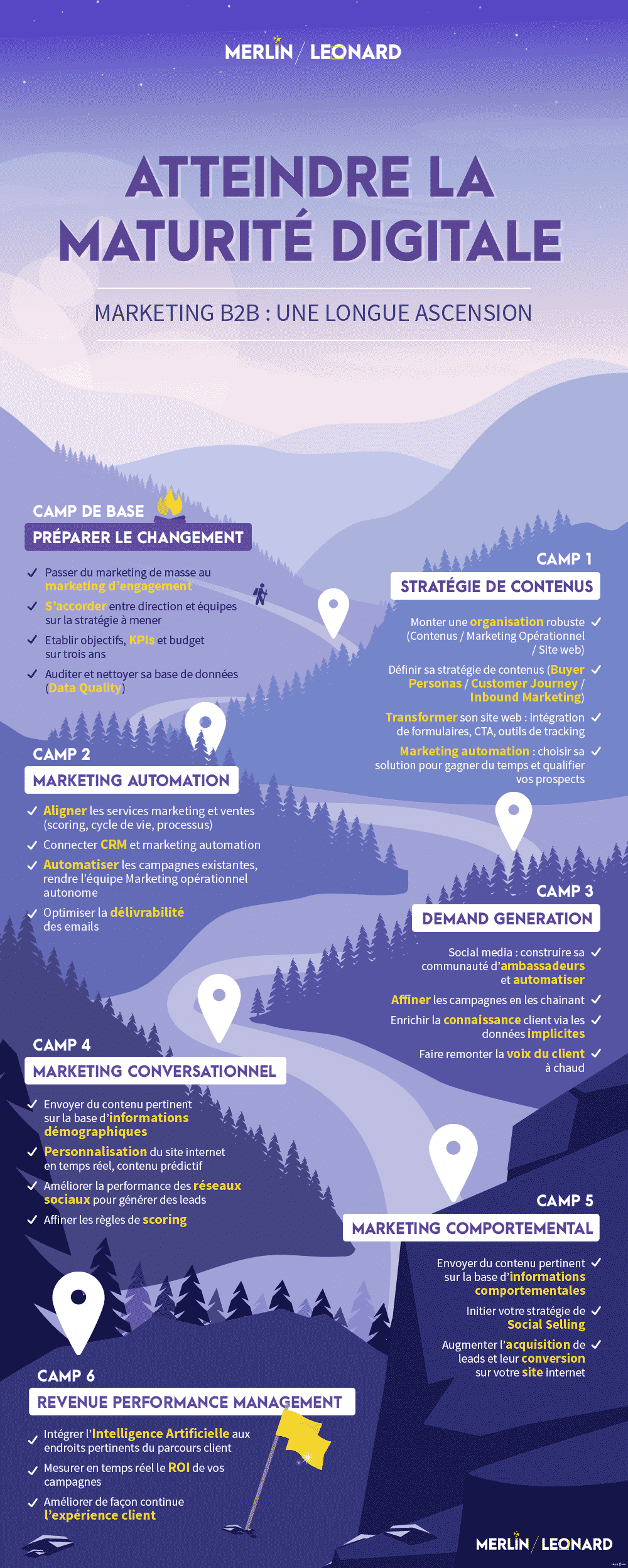With Leonard, we decided to launch remote workshops (the famous webinars) around our approach to customer experience in B2B.
The first topic we wanted to address was money, because without a budget it is very difficult to launch a customer experience platform.
In France, at least, and for some managers, investing in marketing operations is a kind of luxury that you can afford when you have some budget left. Coming from a business background, I have to admit that I have a hard time living with this reality.
Why don’t you put a lot of money into your marketing?
“It doesn’t work and it’s expensive and it’s not for me. In my industry, marketing is useless. Or “We tried it, but we got screwed by an agency. It cost us an arm and a leg for a result close to nada.
And also “Marketing is for companies that sell mediocre products or services. We don’t have any of that.
On the other side of the table, I hear the industry professionals say: “They’re all idiots, they don’t understand anything. In the US it’s 10% of the company’s turnover in the market! Anyway, they’re going to get disrupted, these idiots. And also “I can’t take it anymore, I’m looking for a job elsewhere. I’ve been fighting for years for nothing when there’s so much potential.
My father was a demon and my mother a simple farmer. And in the few years I’ve lived with them, I’ve heard this kind of talk from sunup to sundown (not about marketing, mind you).
Often when the debate is this heated and the grievances this deep, the truth is elsewhere.
Why should you put a lot more money into your marketing operations?
If you are in charge of marketing in a company you can skip this paragraph. If you are in charge, you have probably noticed that the world has changed and so has marketing. While it used to be about analyzing the market and finding potential targets for your products or services, it is now in constant conversation with your audiences and its mission is to engage your customers and prospects, detect and generate business opportunities for your sales people, and also feed valuable information back to R&D and allow you to be at the forefront of your industry.
And to do all this, you give your marketing the pennies that are lying around at the bottom of your wallet?
How to start a constructive dialogue between management and marketing?
The fact is that for years marketing was not able to measure its performance. At least the measurement was rather random. To make it short, there was no “CRM” for marketing.
Except that today there are thousands of tools to finely measure performance.
No more excuses from either side to say that we know what it costs but not what it brings.
If you have any doubts, take a look at Beautifuls numbers and see how to build a B2B marketing action plan worthy of the name.
However, there is another aspect of marketing that allows managers to get away with it. Often, very often, the marketing budget is presented in a purely accounting perspective, as a pile of expenses.
At the same time, the person in charge of marketing (maybe you) comes in and talks about strategy, Demand Gen, inbound marketing, the big changes of our time. Be congruent! If you talk about strategy and the major role of marketing, present a multi-year budget that matches your ambitions.
Whether you announce €100,000 for 2019 or €300k for 36 months, if it’s a no go, it won’t be a no go. As my cousin would say…Dead to death, you might as well go for it!
Think in terms of customer experience.
I’m not going to give you a whole lecture on customer experience and why you should be looking in that direction.
In the meantime, if you consider where you are now and aim for customer experience while having an eye on this infographic that talks about digital maturity, you’ll quickly understand where I’m going with this.

It’s a three-step strategy to get the marketing budget you want every time.
Assess your digital maturity.
It’s so much easier to measure effort when you know where you’re going and especially where you’re starting from. And often, I’ve noticed that you start from where you are when you think (the most complicated sentence of the year. In short, you are here and you want to go there).
And to find out where you are in your digital maturity, there’s nothing like a few questions to get you oriented. Once you know which side you’re starting from (according to the infographic above), you can measure how far you’ve come over the next 36 months. Once you get to the finish line, your competitors will start squealing with rage.
Sell the customer experience in-house.
At this point, all you have to do is “phase” your customer experience project.
If you are at the base camp, the first year, you can consider that you have done a good job if you arrive at camp n°2.
So you will present your project by presenting your digital maturity assessment, your ambition to offer a memorable experience to your customers and finally by justifying the need to commit to three years.
Lean on the right partners to get you started.
For some years now, we have known that marketing and sales need to work together. A good way to start a collaboration is to define common goals based on those of the business.
It’s a great thing when these two entities work together. There’s a third player who should get in on the act: the CFO!
It was Pierre Derenemesnil who brought up this subject during the preparation of our workshop.
So he spent some time with him and tried to understand why the CFO was not comfortable with marketing.
In a former life, he explained to me that as a marketing director, to get his budget through he decided to treat the CFO as an internal customer.
The latter being a numbers man or woman, Pierre started talking about dashboards and reporting. This is how he came to share with his CFO the conviction that marketing actively participates in the creation of value within a company and that this contribution is measurable.
Marketing then went from being a cost center to a profit center.
As in any transformation project, the mapping of stakeholders is an essential phase of the project.
In 2019, your company’s marketing budget should reflect your mission.
Regardless of your industry, your customers and future customers want a memorable experience. Starting a conversation that will make them want to learn more about you and your services, continuing that conversation and turning it into a business opportunity, sustaining that conversation over time, and having your customers become your ambassadors is the role of marketing, sales, and customer relations.
This conversation should be driven by marketing with the support of all employees.
Your marketing budget should reflect this ambition. This is a far cry from simply copying and pasting an Excel file from years ago and adjusting it according to the cash flow.
You can review the webinar in its entirety here => The entire webinar on the marketing budget in 2019
Image credits : Vecteezy






